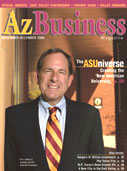Note: All fields are required.
from our blog
February 10, 2021
Seatback Failures
Front occupant seatbacks play a vital safety role in rear-end crashes, similar to the purpose of airbags and seatbelts in frontal impacts. In a rear impact, a front seat should be designed to absorb energy and contain the occupant in the front seating space. Weak, defective front seats can fail, collapse and cause front occupants […]

Allstate Taking $50,000 Bad Faith Claim to Supreme Court
An interesting case has taken place in Pennsylvania, where an individual transferred his rights in a bad faith claim against an insurance company to another individual. As the claim was against Allstate, it is fighting accountability, saying that the allowance for bad faith claims to be assigned in such manner has the potential to create windfalls for plaintiffs. In actuality, it simply gets the injury fully compensated and discourages insurance companies, like Allstate, from making low-ball, absurd offers and forcing injury victims into litigation.
All of this is a result of an accident which occurred in 2007. Jared Wolfe suffered soft tissue damage in an accident when another individual, under the influence of drugs and alcohol, struck his car. The individual driving was insured by Allstate for a $50,000 limit.
Wolfe requested $25,000 in damages to cover his medical costs (well within Allstate’s policy limits), but Allstate refused and counter-offered $1,200. Wolfe filed a suit against the driver for damages. After hearing the evidence, the jury awarded him $15,000 in compensatory and $50,000 in punitive damages. Allstate paid the $15k, but refused to pay the $50,000 because the driver’s policy does not cover punitive damages. In other words, Allstate completely ignored what was in its insured’s best interest when it forced this claim into litigation.
The driver assigned all his rights in the matter over to Wolfe, who was then able to file an insurance bad faith claim against Allstate. After hearing the evidence, the jury in the new case again awarded Wolfe the $50,000 award. Allstate in true “Delay, Deny, Defend” form of course appealed. The Pennsylvania Supreme Court will determine if such an assignment is allowed under Pennsylvania law.
Allstate is arguing that allowing anyone other than the policyholder to file an insurance bad faith claim will start to shift towards “overcompensating” for injuries. Allstate’s protestations ring a little hollow when you consider the details of the current case. Allstate is refusing to pay out an amount that was within the policyholder’s original limits; which was twice awarded to the injured party by two separate juries. It is difficult to see how Allstate can make its argument with a straight face. Allstate completely ignored what was in the best interest of its insured, i.e., Allstate’s insured faced punitive damages for driving under the influence, when it made a low-ball offer of $1,200 to an injury victim with a legitimate claim. Allstate also ignored an offer that was half of its insured’s policy limits. After all these years and the “outing” of its McKinsey documents, Allstate amazingly continues to follow its corporate policy of “profit over people.” Fairly compensating injury victims and taking into consideration what is in the best interest of the insured over Allstate making money is not “overcompensating injured plaintiffs.” It is doing what Allstate should have done in the first place.
If you ever have issues or problems dealing with insurance companies, do not hesitate to get in touch with a skilled insurance bad faith attorney today.

quick links
9375 E. Shea Blvd.
Suite 100
Scottsdale, Arizona 85260
Telephone 480-874-2918
Facsimile 480-588-5063
Mailing Address:
Post Office Box 12877
Scottsdale, Arizona 85267





 Subscribe by Email
Subscribe by Email Shane Harward
Shane Harward Find us on Facebook
Find us on Facebook

